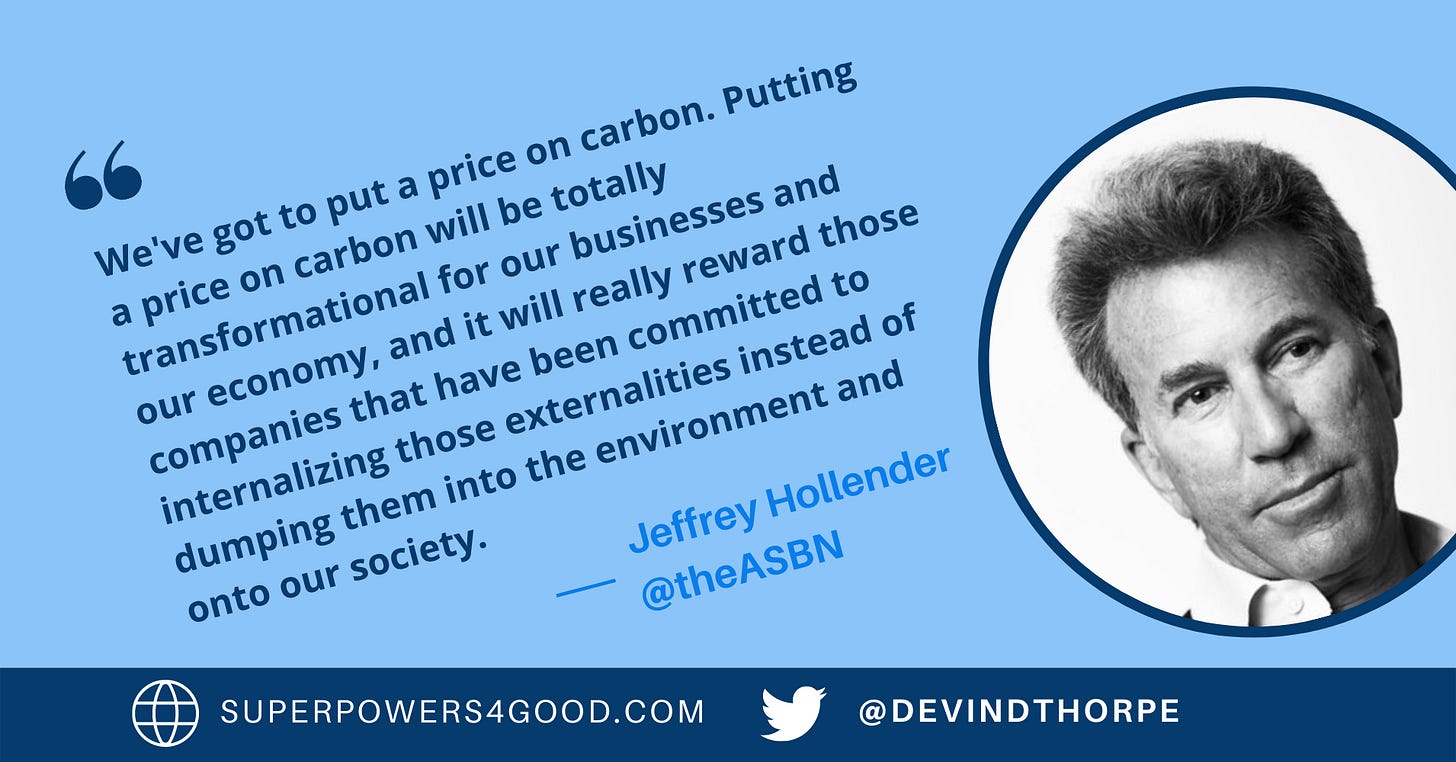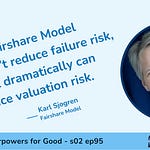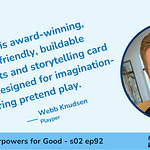Devin: As you reflect on your career and include the work you’re doing today and the success you’re having and have had, what do you think of as your superpower?
Jeffrey: Wow, that’s that’s an interesting and challenging question. Certainly one thing that I reflect on. And by the way, reflection is part of that superpower. I think we don’t do enough of it—as is staying in the moment and living in the present. But what I would say is my willingness to take a hard look at myself in the mirror and see the way in which I’m contributing to the problem myself. It’s always easier to point fingers at other people. It’s much harder to see how we are sometimes at fault. And that kind of honest, humble way of reflecting on yourself and your behavior to me makes me a better leader, makes me a more compassionate and humble person. And as challenging as it is to do, I think that it is helped me succeed and accomplish much of what I’ve accomplished so far.
Jeffrey Hollender is CEO, co-founder and Board Chair of the American Sustainable Business Network, which comprises the former American Sustainable Business Council and Social Venture Circle recently combined in a merger completed this month.
Jeffrey was co-founder and CEO of Seventh Generation, which he built into a leading natural product brand known for its authenticity, transparency, and progressive business practices.
In other words, he is kind of a big deal.
And I was thrilled to host him on the show to talk about the recent merger, Seventh Generation and his superpowers.
“I couldn’t be happier with the fact that we’ve come together, that we will be one organization in the future, and we will have a stronger and more powerful voice in making the world a better place,” he said of the merger.
Having participated in the discussions at the outset, he shared how the merger came about.
During the tenure of Valerie Red-Horse Mohl as executive director for Social Venture Circle, Anand Giridharadas, author of the bestseller Winners Take All, spoke at the annual conference. Jeffrey quoted him as saying, “We’re not going to deal with the social, economic and environmental challenges we face unless we really change the rules by which all businesses are operating.”
At that moment, Val leaned over to Jeffrey and said, “Wow, I bet you guys could help us do that.” Thus began a two-year process that culminated earlier this month in the completed merger of the two organizations.
Jeffrey points to several political victories over the 11 years since the founding of ASBC. One is the success in passing the JOBS Act in 2012, which has helped democratize pre-IPO investing. At the same time, it is helping to level the playing field for accessing capital for underrepresented populations, especially women and BIPOC entrepreneurs.
ASBC also worked to help pass the infrastructure package that became law earlier this year, with the White House acknowledging the organization’s role in building consensus for it. ASBN is now pushing for passage of the Build Back Better bill recently passed by the House and pending consideration in the Senate.
Jeffrey called it “Critical, critical must-pass legislation.” He noted, “This Build Back Better bill is a once in a lifetime opportunity to make critical investments socially and environmentally—very importantly, the biggest investment that the country has ever made to fight climate change.”
“We’ve got to put a price on carbon,” Jeffrey says. “Putting a price on carbon will be totally transformational for our businesses and our economy, and it will really reward those companies that have been committed to internalizing those externalities instead of dumping them into the environment and onto our society.”
“Then we’ve got to move beyond just putting a price on carbon, and we’ve got to move towards this notion of full cost accounting so that we really have a true price when we buy and sell services and products that really is representative of what it costs us to make and use products,” he continued.
Jeffery is a big deal whose work matters. He is changing the world. He has a clear and humble view of his superpower, the ability to reflect on his role in creating the problem he wants to solve.
How to Develop the Ability to Reflect on Your Role in Creating the Problem As a Superpower
Jeffrey can see how his superpower makes him a better leader. “That kind of honest, humble way of reflecting on yourself and your behavior to me makes me a better leader, makes me a more compassionate and humble person. And as challenging as it is to do, I think that it is helped me succeed and accomplish much of what I’ve accomplished so far.”
He notes that it is easier to point the finger at other people, but authentic leadership requires introspection. “The honest way in which I try to see myself, I think, really inspires other people to do the same. And, you know, no one, no one’s perfect. We all have faults. We’re all on a journey to continually learn and become better human beings.”
Business success comes from leadership that takes responsibility for one’s own role in the problem.
“When we create the opportunity for people to grow, when we create the opportunity for people to learn and unleash the power they have within them, that really enables businesses to accomplish extraordinary things.”
From our conversation, I conclude that there are three essential steps to effective reflection.
Define the problem. Business and life present problems from giants like climate change to everyday issues like internal office conflicts. When you are working to solve a problem, start by defining it.
Identify your role. The heart of Jeffrey’s superpower is to assess his role in the problem honestly. In the context of climate change, you could look at your personal carbon footprint, your company’s and the impact of your example within your sphere of influence. With respect to interpersonal discord, it can be even more challenging to see how your behavior contributes to it. An honest assessment is essential.
Make appropriate changes. Jeffrey notes, “It’s hard to change.” He suggests a virtuous cycle of intentionality and reflection, constantly becoming a better person and a better leader. Set out to make the change and then reflect on how it’s going. Adjust and focus your intention, and then periodically reflect on your progress.
By following these steps Jeffrey suggested, you can become a better leader. You can make reflecting on your role in the problem a superpower to help you change the world.


















Share this post